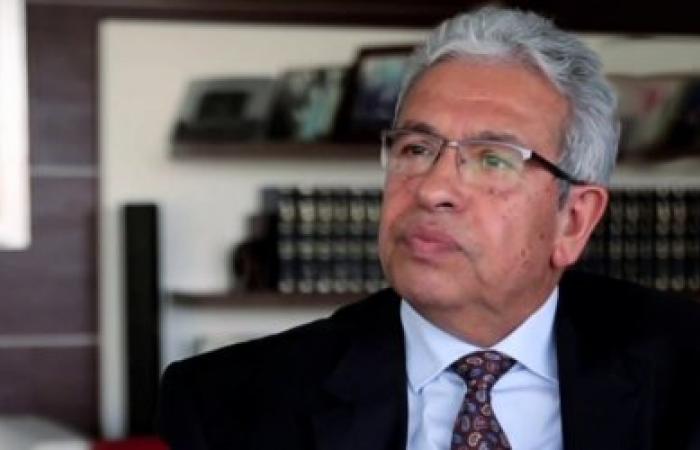In democratic states with presidential systems, it is not very common for heads of state ousted by the ballot box to try to make a comeback in a new electoral round. The same does not apply in parliamentary systems, where prime ministers often return to power again and again. On the whole, however, the practice causes discomfort because it calls into question the nature of the political system, which is not good for stability. Today it is a manifestation of “democratic deficiency” in countries where democratic consensus is more elusive than ever. The subject has come under increasingly heated debate since President Joe Biden’s victory over the incumbent president Trump in November and the recent fall of Benjamin Netanyahu to the coalition led by Naftali Bennet. Both Trump and Netanyahu have vowed to return to power in order to “save” their country.
The process is fairly straightforward in the US, where a Republican candidate can replace a Democratic incumbent and vice versa. In Israel, it is much more complicated. It is not just about switching one coalition for another. For instance, both partners in the new coalition - Bennet and Yair Lapid - had served as ministers under Netanyahu. In both the US and Israel, the margins of victory were very narrow: not much over one per cent in the US and a single seat in the Knesset. In each case, the loser refused to recognise the results, questioned the integrity of the polls and cried conspiracy.
On 21 June, CNN reported that, according to a Monmouth University poll, most of the US public rejected Republican efforts to audit the 2020 state returns. A 57 per cent majority described the audits as “partisan efforts to undermine valid election results.” Only a third of the respondents saw them as “legitimate efforts to identify potential voting irregularities.” In addition, 40 per cent held that such audits would weaken American democracy, while 20 per cent said the audits would strengthen it. Another 35 per cent believed they would have no impact. “The problem-ridden audit of Arizona’s 2020 election results, which has exasperated even some Republicans in the state, hasn’t uncovered evidence suggesting widespread voter fraud. But it has inspired pro-Trump Republicans to push for similar efforts in other states,” the report writes. “Although the survey didn’t explicitly identify the audits as Republican-led efforts, it still found sharp divides along political lines. A near-universal 90 per cent of Democrats view the audits as bad faith, partisan ploys. Republican support for the audits is broad, but less overwhelming: 59 per cent call them legitimate, with 31 per cent seeing them as attempts to overturn valid results.”
The report continues, “Both the overall numbers and the partisan divides reflect wider opinions about the 2020 election. Most Americans, 61 per cent, believe President Joe Biden won the 2020 election fair and square, a number that’s budged little since last November. But 57 per cent of Republicans say they believe the baseless theory that Biden’s victory was due to voter fraud.”
Despite the differing figures and methods, Netanyahu shares the feelings of his companion on the “Deal of the Century” road. He thinks that 12 consecutive years in power qualify him for more. On the Israeli political spectrum, there is not much difference between a coalition headed by Netanyahu and another headed by Bennet. It is particularly hard to tell the two apart in terms of their statements, demands and behaviour in relation to the aftermath of the fourth war in Gaza. But in Israel, the problem is not policies but a prime minister clinging to his seat for too many terms. That, of course, was not an issue in Trump’s case, as he only served one term. This has several precedents. The 39th and 41st presidents - Jimmy Carter (a Democrat) and George Bush Sr (a Republican) - were both one-term presidents. On this occasion, however, the issue is complicated by criticisms and doubts about the polling system itself.
In the US, the debate centres around the right to vote outside monitored voting stations, whether through mail-in ballots or mobile ballot boxes in specific neighbourhoods. Democrats believe that such solutions facilitate the right of all citizens to cast their vote without undue encumbrance, while Republicans want to limit the places and times for voting and, in some cases, even the right to vote in order to keep out immigrant minorities. In Israel, people are questioning the efficacy of the system itself. After four electoral rounds that failed to produce a clear electoral majority, some have begun to call for the direct election of the prime minister. The suggestion has been tried before. It brought Netanyahu into power in the second half of the 1990s and removed him from power at the turn of the century. The problem in the US and Israel is that proposals to change the rules of the game are not shaped by the desire to secure the people’s ability to choose their leaders and, hence, by a high degree of consensus. Rather, they have arisen in times of sharp polarisation between Democrats and Republicans in the US and severe discord between all factions from right to left in Israel.
The problem may be even deeper. The democratic political system, as a whole, suffers a persistent weakness due to the fragmentation of political forces and the focus on the individual, rather than the issues, which facilitates the exploitation of the dynamics of charisma to manipulate public opinion. Trump and Netanyahu have political assets (their corruption is another matter) that make them powerful and influential among broad swathes of society. Whether they attract or repel, or inspire love or hate, the play given to passions reduces the scope for objectivity, rationality and wisdom needed for the system to work effectively to order priorities and make decisions.




 رئيس التحرير يكتب : من التراب وإلى التراب يعود .. تحويل جثث الموتى إلى سماد عضوى
رئيس التحرير يكتب : من التراب وإلى التراب يعود .. تحويل جثث الموتى إلى سماد عضوى
 رئيس التحرير يكتب : لماذا تصر الحكومة على استمرار شريف أبو النجا رئيسا لمستشفى 57357 رغم الشواهد العديدة على فساده
رئيس التحرير يكتب : لماذا تصر الحكومة على استمرار شريف أبو النجا رئيسا لمستشفى 57357 رغم الشواهد العديدة على فساده اقرأ في العدد الجديد ( عدد يناير ٢٠٢٣ ) من جريدة صوت بلادي
اقرأ في العدد الجديد ( عدد يناير ٢٠٢٣ ) من جريدة صوت بلادي









